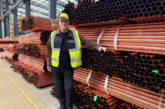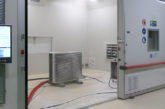
Worcester, Bosch Group, is urging the European Commission to take a “common-sense approach” and reconsider bringing spare part circulating pumps under the Energy-Related Products (ErP) Directive by 2020.
Such a move, it argues, would require boilers installed before September 2015, which may not have had a low energy circulating pump at the time of manufacture, to be fitted with one, should the original pump fail. This could compromise the safety and performance of a boiler, and leave homeowners out of pocket.
The ErP Directive, which was first brought in in 2015, requires all new Combi and System boilers to be fitted with low-energy circulating pumps. These pumps are often larger than traditional pumps, which is a particular issue in the UK, where boilers have usually been more compact.
According to Worcester’s Director of Technical Communication and Product Management, Martyn Bridges, an installer will not be able to source a circulating pump of the type that was originally used within the boiler at the time of manufacture if the changes to ErP are carried out.
He explains: “No-one is denying that the ErP Directive and the move to ensure minimum efficiency standards for all appliances are a positive thing. However, bringing spare parts under its remit seems unnecessarily complicated and incredibly short-sighted. In effect, what it actually could do is penalise anyone who owns a boiler of more than six years old.
“Circulating pump replacements will become problematic for installers when faced with the challenging situation of attempting to fit a larger, low-energy pump into a more compact space. This raises a great deal of questions about safety and performance, not to mention the possibility that, if a repair is not possible, a customer may be required to replace the boiler entirely at a much higher cost.”
Worcester is now lobbying the Commission via its trade associations to allow for a “repair as produced” position. This would ensure that a reasonable working life is obtained from a boiler.
Martyn adds: “In essence, we’re calling for a common-sense approach. There’s a huge amount of doubt, risk and potential inconvenience attached to the legislation as it stands now, so why not focus on the bigger gains of making new boilers with low energy secondary components such as pumps, while allowing existing boilers that weren’t made with these components to be repaired as produced?
“Green policy such as the ErP is a positive thing, but it needn’t come with such a high cost or burden to both the consumer and installer.”
For more information, visit: www.worcester-bosch.co.uk












